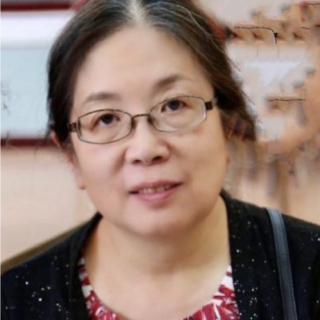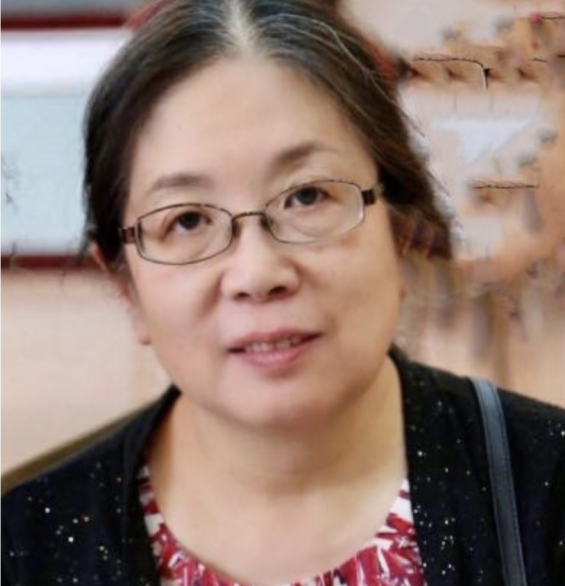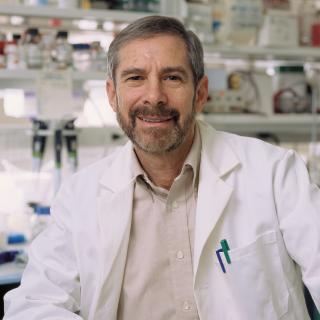
Xiaolan Qian, M.D., Ph.D.
- Center for Cancer Research
- National Cancer Institute
- Building 37, Room 4112
- Bethesda, MD 20892-4263
- 240-760-7925
- 301-594-3996
- qianx@mail.nih.gov
RESEARCH SUMMARY
Dr. Qian’s major research interests have focused on the impact of certain oncogenes and tumor suppressor genes on normal and neoplastic cell growth and signaling. Her recent studies have included the use of cell biological approaches to understand growth and signaling differences that result from the perturbation of protein kinases (Her-2, EGFR, Src, FAK, Cdk4/6), tumor suppressors (DLC1, p15/p16), cell-cell adhesions (E-cadherin), focal adhesions (talin, tensin, vinculin, paxillin, integrins), and the regulation of small GTPases (Ras, Rap, Rho, Cdc42) by oncogenic GEFs or tumor suppressive GAPs.
Areas of Expertise

Xiaolan Qian, M.D., Ph.D.
Research
My major projects have focused on cell growth and signaling affected by certain oncogenes and tumor suppressors. In one of my early studies in this area, I explored that tumor suppressor E-cadherin (an essential adhesion protein) can negatively regulate, in an adhesion-dependent manner, the ligand-dependent activation of divergent classes of receptor tyrosine kinases (RTKs), by inhibiting their ligand-dependent activation in association with decreases in receptor mobility and in ligand-binding affinity.
Abrogation of E-cadherin regulation may contribute to the frequent ligand-dependent activation of RTK in tumors. In a collaborative project with Dr. Eugene Santos, I found that the two Ras-specific exchanging factors, Sos1 and Sos2, differ in placenta expression and signaling properties in conjunction with EGFR or v-Src. In collaboration with Dr. Nicolae Popescu, I worked on deleted in liver cancer-1 (DLC-1), a tumor suppressor with Rho-specific GAP activity. I developed a series of assays that determined the full activity of DLC1 requires its specific interaction with several focal adhesion proteins (such as tensin, talin, FAK, vinculin, etc). I also demonstrated that the Src-dependent phosphorylation on tensin-3 protein, including in its SH2 domain, is critical to its tumorigenic and metastatic activities.
My most recent project is focused on the regulation of the Dbl oncogene, a guanine exchanging factor for Rho/Cdc42. The post-translational modification on Dbl by certain kinase on the DH and/or PH domains make important contributions to modulating its GEF activity and bioactivity.
In addition to these projects within LCO, I have established collaborative projects with several extramural laboratories. Two other collaborative efforts are to further understand the molecular details of the interaction between DLC1 and talin with an excellent structural biologist, Dr. Igor Barsukov, at the University of Liverpool, United Kingdom, and to explore the mechanism of DLC1 negative regulation on talin with an integrin expert, Dr. Sandford Shattil, at the University of California San Diego.
Publications
E-cadherin-mediated adhesion inhibits ligand-dependent activation of diverse receptor tyrosine kinases
Inactivation of the Dlc1 gene cooperates with downregulation of p15INK4b and p16Ink4a, leading to neoplastic transformation and poor prognosis in human cancer
Full activity of the deleted in liver cancer 1 (DLC1) tumor suppressor depends on an LD-like motif that binds talin and focal adhesion kinase (FAK)
The Tensin-3 protein, including its SH2 domain, is phosphorylated by Src and contributes to tumorigenesis and metastasis
Oncogenic inhibition by a deleted in liver cancer gene requires cooperation between tensin binding and Rho-specific GTPase-activating protein activities
Biography

Xiaolan Qian, M.D., Ph.D.
Dr. Qian completed her M.B. in pediatrics and M.S. in biochemistry at Shanghai Second Medical University, Shanghai, China. She also obtained a certificate issued by the ECFMG (Educational Commission for Foreign Medical Graduates) in the U.S.A. for training in human genetics at the University of Pennsylvania School of Medicine (Philadelphia, PA). Dr. Qian then earned a Ph.D. in biology at the University of Pennsylvania. Her thesis work was completed in Dr. Mark Greene's laboratory. It elucidates the mechanism of inter-receptor activation by the tyrosine kinases EGFR and erbB2, and their cooperation in cellular signaling and biology. After a postdoctoral fellowship in Dr. Greene’s laboratory, she joined the Laboratory of Cellular Oncology (LCO) at CCR. Her major projects in LCO have included the use of cell biological approaches to understand normal and neoplastic cell growth and signaling resulting from the perturbation of cell-cell adhesions, and the regulation of small GTPases (such as Ras, Rap, Rho and Cdc42) by oncogenic GEFs or tumor suppressive GAPs.
